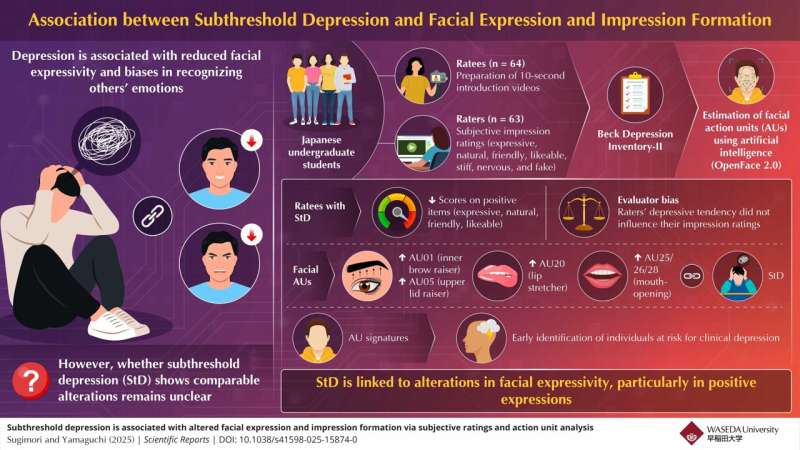In light of this, Associate Professor Eriko Sugimori and doctoral student Mayu Yamaguchi from the Faculty of Human Sciences, Waseda University, Japan, have now investigated changes in facial expression in Japanese undergraduates using facial data and artificial intelligence. The study was published in the journal Scientific Reports on 21 August 2025.
“As concerns around mental well-being have been rising, I wanted to explore how subtle nonverbal cues, such as facial expressions, shape social impressions and reflect mental health using artificial intelligence-based facial analysis,” says Sugimori.
The researchers asked 64 Japanese university students to record short self-introduction videos. Another group of 63 students then rated how expressive, friendly, natural, or likable the speakers appeared. At the same time, the team used OpenFace 2.0, an artificial intelligence system that tracks micro-movements in facial muscles, to analyze the same videos.

